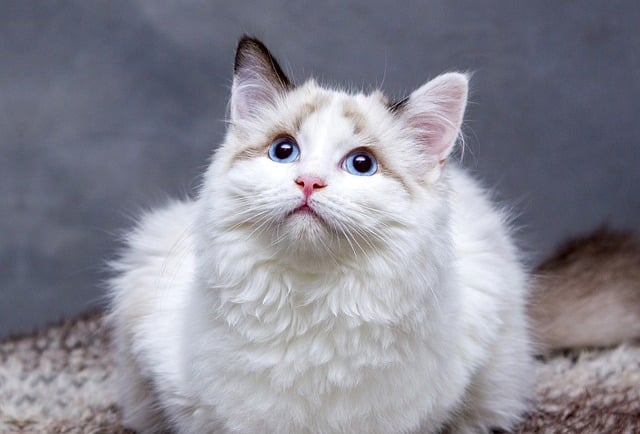This article aims to provide a comprehensive guide on choosing the right food for exotic pets. With over 1,500 species of animals kept as pets worldwide, selecting the appropriate diet can be overwhelming and require extensive research. In this article, we will delve into key points related to nutrition, dietary requirements, and factors to consider when making an informed decision about your exotic pet’s meal plan.
The first step in choosing the right food for your exotic pet is understanding its specific dietary needs. Each species has unique nutritional requirements that cannot be generalized across other animals. For example, a carnivorous mammal such as a ferret requires a diet rich in protein, whereas a herbivorous bird like a parrot demands a high-fiber diet rich in fruits and vegetables.
Another crucial aspect to consider is the availability of commercial foods specifically formulated for exotic pets. Many pet owners rely on generic or human food, which can be detrimental to their pet’s health due to nutritional imbalances and potential allergens. A well-balanced and nutrient-rich commercial food can provide essential nutrients necessary for optimal growth and development.
Some factors that may influence your decision include the age, size, and activity level of your exotic pet. For instance, a young, growing reptile like a bearded dragon requires a diet rich in protein to support its rapid growth, whereas an adult snake demands a more varied and complex diet to maintain optimal health.
Additionally, you must consider any dietary restrictions or allergies that may arise due to the exotic pet’s genetic makeup. For example, some species are naturally inclined to eat certain types of food, while others may be more prone to developing digestive issues if fed the wrong foods.
It is also essential to weigh the pros and cons of homemade versus commercial diets for your exotic pet. Homemade diets can offer personalized nutritional adjustments but often require extensive knowledge and preparation. Commercial foods, on the other hand, provide a convenient and balanced solution; however, some owners may be concerned about additives or preservatives.
Furthermore, it is vital to stay up-to-date with changes in dietary recommendations and ensure that your pet’s food plan aligns with these suggestions. Scientific research and expert consensus can evolve over time, so regular updates are necessary to maintain optimal nutrition for your exotic companion.
Lastly, consulting with a veterinarian or experienced breeder knowledgeable about the specific needs of your exotic pet is indispensable in making an informed decision regarding its diet. They can offer personalized guidance based on their expertise and provide valuable insights into your pet’s nutritional requirements.
A comprehensive understanding of your exotic pet’s dietary needs involves researching both commercially available foods and exploring homemade options, as well as considering age, size, activity level, and any potential allergies or restrictions. Staying informed about the latest scientific research and consulting with a veterinarian can ensure that you provide optimal nutrition for your beloved companion.
Choosing the right food for exotic pets requires careful consideration of several key factors, including dietary needs, availability of commercial foods, age, size, activity level, genetic predispositions, homemade versus commercial diets, and staying informed about nutritional recommendations. By following these guidelines, you can provide a balanced and nutritious meal plan that supports optimal health and well-being for your exotic pet.
Choosing the right food for your exotic pet is essential to maintaining their overall health and wellbeing. A diet tailored to meet an animal’s specific needs will help prevent health problems and ensure they thrive in captivity. Whether you opt for a commercial or homemade diet, always consult with a veterinarian before making any changes to your pet’s meal plan.
When selecting food for your exotic pet, consider their age, size, activity level, and genetic predispositions. Choose a commercially available food that is specifically formulated for your pet’s species and dietary requirements. For those who prefer homemade diets, consult with a veterinarian or a qualified breeder to ensure the diet meets nutritional standards. Regular updates on scientific research and expert consensus are also essential in maintaining optimal nutrition.
Choosing the right food for exotic pets can be an overwhelming task, but by considering these factors, you can make an informed decision that supports your pet’s health and wellbeing. With the right knowledge and guidance, you can create a balanced and nutritious diet plan tailored to your pet’s specific needs.
For optimal nutrition and overall health of your exotic pet, consult with a veterinarian or qualified breeder before selecting their food. Consider age, size, activity level, genetic predispositions, commercial availability, homemade options, scientific research updates, and expert recommendations when making an informed decision about what to feed your pet.
By taking the time to consider these factors, you can provide a balanced diet that supports optimal health and wellbeing for your exotic companion. With dedication and knowledge, you can create a meal plan tailored to their specific needs, ensuring they thrive in captivity.
Choosing the right food for your exotic pet requires attention to several key factors. Consider their age, size, activity level, genetic predispositions, commercial foods, homemade options, scientific research updates, and expert recommendations before making an informed decision about their diet plan.

